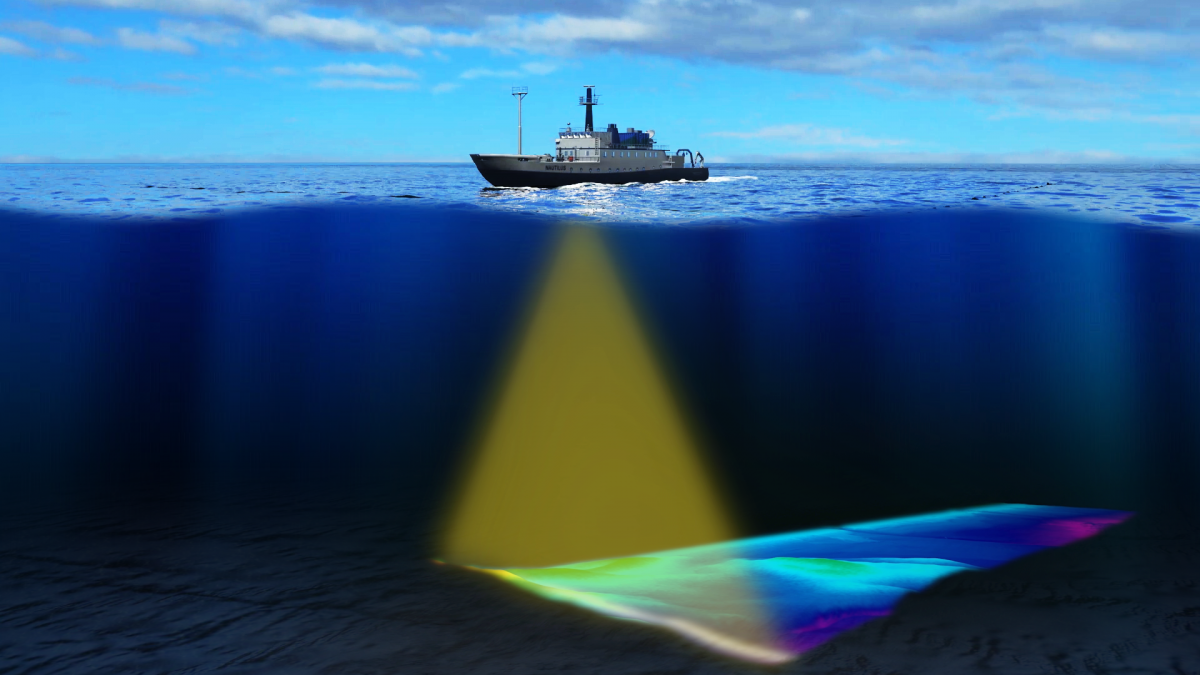Underwater Acoustics & Sonar Testing
The field of underwater acoustics is a critical discipline within marine technology and engineering. It involves the generation, transmission, and reception of sound waves in water to achieve various objectives such as communication, detection, and imaging. Sonar testing plays an integral role in this domain by using acoustic signals for navigation, target identification, and environmental monitoring.
Acoustic signals used in underwater environments are governed by unique properties due to the medium's characteristics, which differ significantly from those of air. Sound waves travel faster in water than in air; moreover, they can be transmitted over much longer distances without significant attenuation. This makes acoustic testing particularly effective for deep-sea operations, naval applications, and environmental monitoring.
Underwater acoustics is closely linked with sonar technology, which utilizes sound waves to detect objects or measure the distance to a target. Sonar systems can be categorized into active and passive types:
- Active Sonar: Emits pulsed sounds that bounce off targets before returning as echoes.
- PASSIVE SONAR: Listens for sound waves produced by the target itself, such as those from machinery or bio-acoustic signals.
The testing of these systems involves a range of parameters including frequency, signal strength, beamforming capabilities, and environmental adaptability. The accuracy and reliability of these tests are paramount to ensure that marine vessels, underwater drones (AUVs), and sonar systems perform optimally in their intended environments.
Key instruments used for testing include hydrophones, which convert sound waves into electrical signals, and transducers, which generate the acoustic signals. The testing process typically involves calibrating these devices to ensure accurate measurements under various conditions such as temperature variations, salinity levels, and water pressure.
In addition to technical accuracy, environmental sustainability is a growing concern in underwater acoustics and sonar testing. The testing methods must minimize noise pollution and other impacts on marine ecosystems. Compliance with international standards like ISO 18427:2016 for calibration of hydrophones ensures that the tests are conducted ethically and responsibly.
Our laboratory is equipped with state-of-the-art facilities to perform comprehensive underwater acoustics & sonar testing, adhering strictly to industry best practices. We offer a full range of services including:
- Precision calibration of hydrophones
- Evaluation of active and passive sonar systems
- Testing for environmental adaptability and noise pollution levels
- Data analysis and reporting
The results of these tests are crucial for ensuring the safety, efficiency, and effectiveness of marine operations. They also provide valuable insights into the performance of various components under real-world conditions.
Our team of experts is dedicated to providing accurate, reliable, and sustainable testing services that meet the highest standards in the industry. By choosing Eurolab for your underwater acoustics & sonar testing needs, you can be assured that your marine operations will benefit from the most advanced testing methodologies available.
Eurolab Advantages
At Eurolab, we pride ourselves on delivering unparalleled service in underwater acoustics and sonar testing. Our advantages are numerous and include:
- Comprehensive Testing Capabilities: We offer a full spectrum of tests to cover all aspects of your underwater acoustic and sonar systems.
- Expertise and Experience: Our team consists of highly qualified professionals with extensive experience in the marine industry.
- State-of-the-Art Facilities: Equipped with cutting-edge equipment to ensure precise and accurate testing results.
- Compliance with International Standards: All our tests are conducted in strict adherence to recognized standards such as ISO 18427:2016.
- Sustainability Focus: Our practices aim to minimize noise pollution while ensuring the highest level of accuracy and reliability.
- Customized Solutions: We tailor our services to meet your specific requirements, whether it's for research & development or compliance needs.
- Rapid Turnaround Times: We understand the importance of timely results and strive to deliver them efficiently without compromising on quality.
- Comprehensive Reporting: Our reports are detailed and easy to understand, providing you with all the necessary information for decision-making.
By leveraging these advantages, Eurolab ensures that your underwater acoustic and sonar testing is not only efficient but also meets the highest standards of accuracy, reliability, and sustainability.
Environmental and Sustainability Contributions
The environmental impact of underwater acoustics and sonar systems has become a significant concern. The noise generated by these systems can disrupt marine life and affect their natural behaviors. At Eurolab, we are committed to minimizing this impact through our testing methodologies. Here's how:
- Minimized Noise Pollution: Our tests ensure that the acoustic signals used in sonar systems do not exceed safe levels as defined by international standards.
- Eco-Friendly Practices: We use sustainable practices during all stages of testing to minimize any adverse effects on marine ecosystems.
- Research and Development: By providing accurate data, we contribute to the ongoing research aimed at developing more eco-friendly sonar systems.
In addition to these measures, Eurolab actively participates in initiatives focused on reducing the environmental footprint of underwater acoustic testing. Our contributions are recognized by regulatory bodies and industry stakeholders alike, further solidifying our commitment to sustainability.
Use Cases and Application Examples
The applications of underwater acoustics and sonar systems are vast and varied across different sectors. Here are some key use cases:
- Naval Operations: Sonar systems are essential for naval vessels to detect submarines, identify targets, and navigate safely.
- Marine Research: Researchers use acoustic signals to study the behavior of marine life and their habitats.
- Oil & Gas Industry: Acoustic testing is used in exploration activities to map seabed topography and locate potential drilling sites.
- Environmental Monitoring: Continuous monitoring of water quality using acoustic sensors helps in early detection of pollution incidents.
In each of these applications, accurate and reliable testing is crucial. Eurolab's comprehensive services ensure that the systems used are optimized for their intended purposes, thereby enhancing operational effectiveness and safety.





